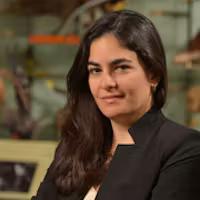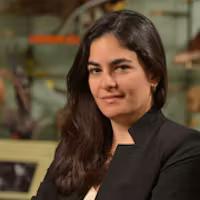Discover ecosystem recovery, population dynamics, and conservation strategies through a case study of Gorongosa National Park.
Discover ecosystem recovery, population dynamics, and conservation strategies through a case study of Gorongosa National Park.
Dive into the complex world of ecosystem dynamics and conservation with this course from the American Museum of Natural History. Using Mozambique's Gorongosa National Park as a case study, you'll explore fundamental ecological concepts and apply systems thinking to understand ecosystem recovery. The course covers key topics such as population dynamics, species interactions, energy flow in ecosystems, and the challenges of conservation in the Anthropocene. Through a combination of expert lectures, case studies, and interactive quizzes, you'll gain a comprehensive understanding of ecosystem functioning and the intricate balance between human needs and biodiversity conservation. This course is ideal for those interested in ecology, conservation biology, and environmental science, offering practical insights into real-world conservation challenges.
4.8
(3,239 ratings)
69,307 already enrolled
Instructors:
English
پښتو, বাংলা, اردو, 3 more
What you'll learn
Understand the principles of ecosystem dynamics and recovery processes
Analyze population dynamics and species interactions within ecosystems
Explain the concepts of keystone species, trophic cascades, and ecological networks
Describe energy flow and matter cycling in ecosystems
Evaluate the impacts of human activities on ecosystems and biodiversity
Apply systems thinking to complex ecological problems
Skills you'll gain
This course includes:
4 Hours PreRecorded video
5 assignments
Access on Mobile, Tablet, Desktop
FullTime access
Shareable certificate
Closed caption
Get a Completion Certificate
Share your certificate with prospective employers and your professional network on LinkedIn.
Created by
Provided by

Top companies offer this course to their employees
Top companies provide this course to enhance their employees' skills, ensuring they excel in handling complex projects and drive organizational success.





There are 5 modules in this course
This course offers a comprehensive exploration of ecosystem dynamics and conservation ecology, using the real-world case study of Gorongosa National Park in Mozambique. Students will learn about the complex interactions within ecosystems, from population dynamics to community ecology and ecosystem-level processes. The curriculum covers key ecological concepts such as keystone species, trophic cascades, and ecosystem services, while also addressing contemporary challenges in conservation biology. Through a systems thinking approach, learners will analyze how ecosystems respond to disturbances and explore various conservation strategies. The course culminates in a discussion of human-ecosystem interactions and the future of conservation in the Anthropocene, providing students with a holistic understanding of modern ecological challenges and potential solutions.
Can an Ecosystem Recover?
Module 1 · 1 Hours to complete
How Do We Study Populations?
Module 2 · 1 Hours to complete
How Do Species Coexist?
Module 3 · 2 Hours to complete
How is an Ecosystem a System?
Module 4 · 1 Hours to complete
Can an Ecosystem Recover?
Module 5 · 1 Hours to complete
Fee Structure
Payment options
Financial Aid
Instructor
Director
Dr. Ana Luz Porzecanski is a conservation scientist and director of the American Museum of Natural History’s Center for Biodiversity and Conservation (CBC), a research center focused on transforming knowledge—from diverse sources and perspectives, and spanning areas of scientific research as well as traditional and local knowledge—into conservation action.
Testimonials
Testimonials and success stories are a testament to the quality of this program and its impact on your career and learning journey. Be the first to help others make an informed decision by sharing your review of the course.
Frequently asked questions
Below are some of the most commonly asked questions about this course. We aim to provide clear and concise answers to help you better understand the course content, structure, and any other relevant information. If you have any additional questions or if your question is not listed here, please don't hesitate to reach out to our support team for further assistance.



